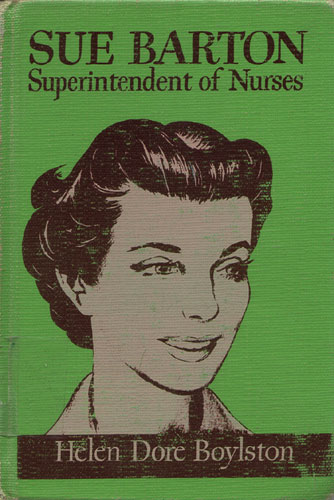
Autumn comes early in New Hampshire. September had scarcely begun, yet already the northern flanks of the White Mountains were touched with crimson, and the worn summits stood out sharply in frosty air. In the valleys, however, the summer still clung in a drowsy blue haze, and the maples shading the little town of Springdale had not yet lost their August green.
Springdale itself lay along the banks of its small river, a scattering of white houses and spacious barns walled in by hills — a sleepy little town in a sleepy little valley, where nothing, it seemed, ever happened.
But something was happening that September afternoon, though not precisely in the village: On a bluff high above it, in the grounds of a small, glaringly new brick hospital, there was a continuous stir of activity. Cars sped around the circular drive, each pausing before the hospital to unload a trunk and passengers — always a hesitant girl with a suitcase, accompanied by relatives. Each time, the group went uncertainly into the hospital to emerge, presently, through the rear door, in the wake of a white-uniformed nurse.
A lank man in overalls, with handlebar moustache, dawdled a lawnmower over the grass as close as possible to the hospital entrance.
“No good’ll come of it!” he muttered darkly from time to time for the benefit of the “up” patients congregated in the sun porches. The patients grinned. They were all natives of the village or surrounding countryside and Nat Delano’s dire predictions were a long-standing community joke.
The hospital janitor and three maids were grouped, ostensibly for conversation, in a basement doorway overlooking the drive. Back among the trees, on the verandah of Edgett Hall, the nurses’ residence, was a gathering of white uniforms whose owners had been seized with a desire for fresh air — and a view of the centre rear door of the hospital.
This was the door through which the new arrivals emerged, an intermittent procession of tall girls and short, thin girls and fat, with assorted parents. But however varied their looks the girls had three things in common: they were all young, all a little scared, and they must all pass that battery of eyes from the hospital to the brick dormitory among the trees.